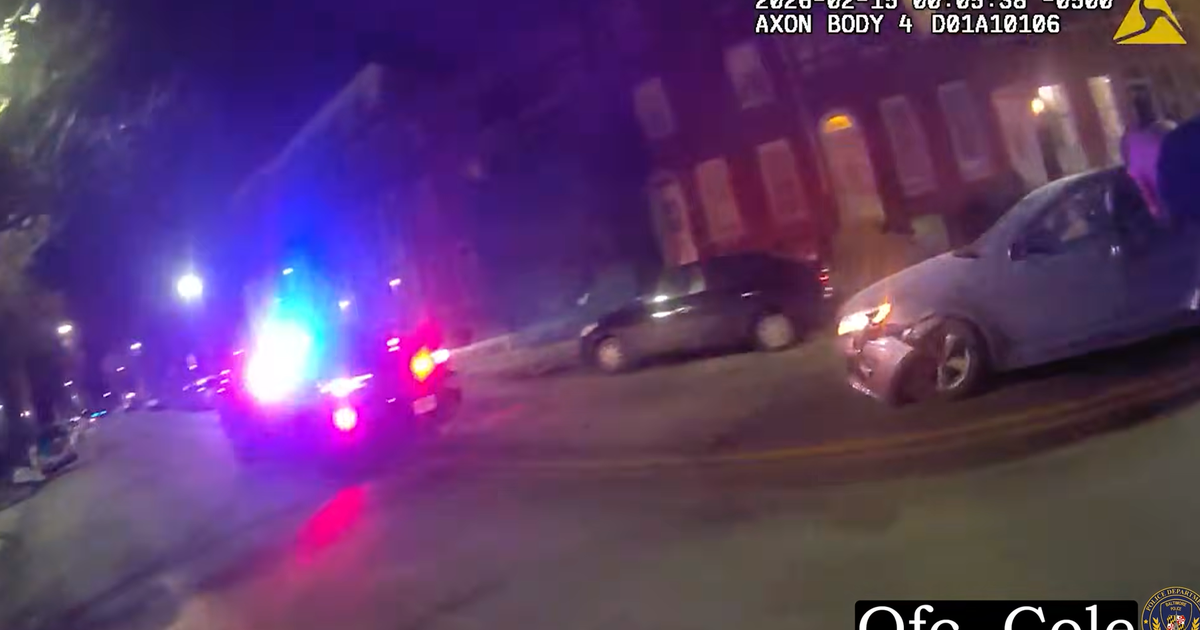Bruce Willis' Aphasia Diagnosis Shines Spotlight On Research And Support In Pittsburgh
PITTSBURGH (KDKA) - Bruce Willis is stepping away from acting after he was diagnosed with a language disorder called aphasia. Willis' diagnosis is raising awareness about research and resources in the city of Pittsburgh.
Willis stepping away from his career was sad news in Hollywood Wednesday. Willis' family said in a post on his daughter Rumor's Instagram that the 67-year-old Willis has been experiencing some health issues and was recently diagnosed with aphasia.
"Aphasia can affect the ability to speak, to understand language, to read or to write," said Dr. Will Evans, a University of Pittsburgh assistant professor in the Communication Science and Disorders Department.
Evans has been doing aphasia rehabilitation research at the University of Pittsburgh. He said the most common cause of aphasia is stroke; other causes include head injury, brain tumor or dementia.
"If something happens to the brain and affects the core language system, somebody will end up with a diagnosis of aphasia and it can be really devastating. Just imagine knowing exactly what you want to say and not being able to produce that. It can be really frustrating, and people can become really isolated," Evans said.
Evans said aphasia not only affects a person's ability to communicate, but it can create feelings of isolation and lead to mental health issues, like depression and anxiety.
What caused 67-year-old Willis to develop the language disorder is unknown. His family said that it's impacting his cognitive abilities.
"It can be really difficult and so thoughts and support just going out to what Bruce Willis and his family are going through right now," Evans said.
Willis' career spans decades. He is best known for his starring role in the "Die Hard" films. Pittsburghers certainly remember his 1993 film "Striking Distance" in the Steel City and on the three rivers. In the movie, Willis played a homicide detective who gets demoted to the River Rescue squad as he investigates a serial killer.
Action films may not be in Willis' future but Evans says there are treatments and hope for people diagnosed with aphasia. He said there are behavioral treatments, intensive language therapy and support groups.
"I know people in the aphasia community, that life continues. If the people we see support -- when they figure and accept and deal with what happens to them, there is a beautiful life that can follow from that, people supporting each other, fighting isolation," he said.
"Locally, I am part of a Pittsburgh translational aphasia research initiative of bringing together some of my colleagues here at Pitt and the Pittsburgh VA and we have a new aphasia support group so free resources are available right here in the community. If you know somebody who has aphasia that's feeling isolated, resources are available right here locally," he said.
For anyone local interested in Pitt's new free aphasia support group, contact aphasia.group.pgh@gmail.com.
Evans said they also have active aphasia treatment studies going on in his lab looking to improve language and address the emotional impact of living with aphasia. Learn more information here or contact lrcl@groups.pitt.edu.
Other resources include the National Aphasia Association and Aphasia Recovery Connection.







